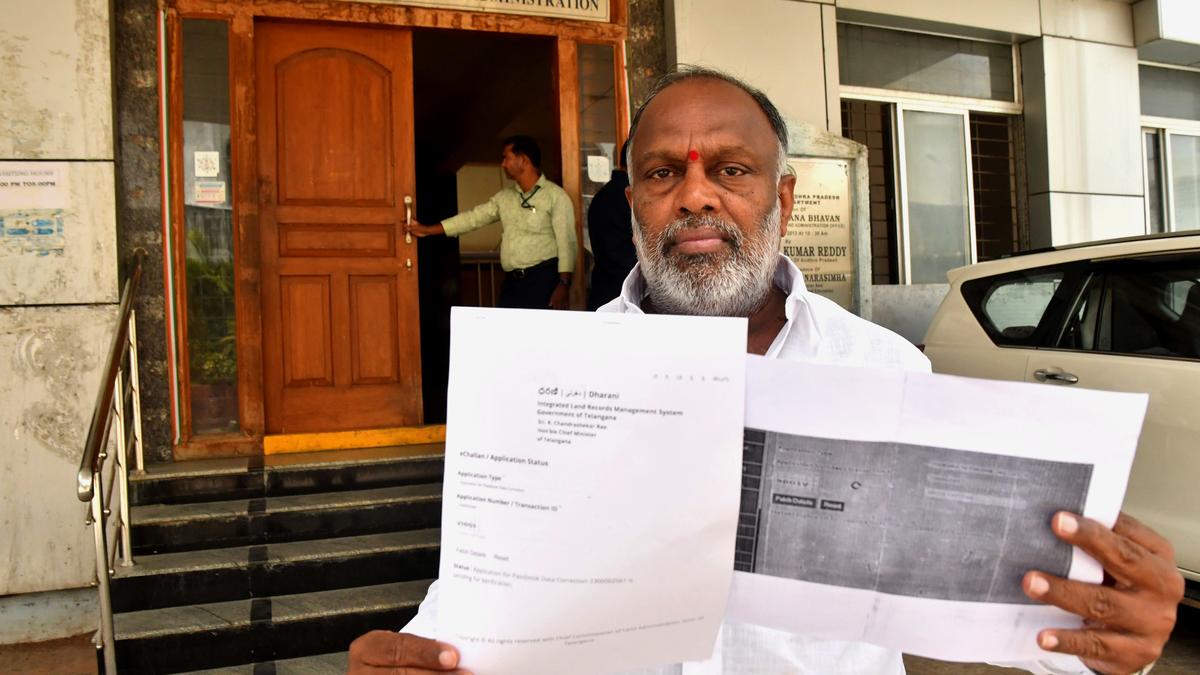
Committee recommends replacement of Dharani portal with Bhumatha and enactment of new RoR Act in Telangana
The Hindu
Committee recommends replacing Dharani portal with Bhumatha, enacting new land laws, and strengthening land administration in Telangana.
The committee constituted to study the functioning of Dharani portal and its shortcomings has recommended the replacement of Dharani portal with a new Record of Rights (RoR) portal to be called as Bhumatha.
The management of the new portal should be given to a new agency (CGG/NIC/TS Online) which should create and maintain it. A technical team comprising experts in law, land tenure, revenue and software should be constituted to guide and monitor the work. These form part of the short-term measures recommended by the committee headed by senior Congress leader M. Kodanda Reddy comprising retired bureaucrat Raymond Peter, land laws expert M. Sunil Kumar and retired special grade collector B. Madhusudan Reddy, as members. Chief Commissioner of Land Administration Navin Mittal is the member-convenor of the committee.
The committee members visited villages, interacted with farmers, especially those facing difficulties on account of the introduction of Dharani portal, as well as Revenue officials at different levels for finalising their report. In the report submitted to the government, the committee recommended 32 measures — six in short-term, 16 for the medium-term and another 10 in the longer-term — to strengthen land administration mechanism in the State.
The committee wanted the government to enact a new Telangana Rights in Land and Pattadar Passbooks Act, 2020 (popularly known as Record of Rights Act) brought out by the previous Bharat Rashtra Samithi (BRS) government at the time of the launch of Dharani portal. The previous Act had several deficiencies and it was therefore recommended that the government enact a new law for creating and maintaining record of rights.
Besides, it recommended that the government constitute Land Governance Innovations and Legal Support Cell for assisting it in taking up land governance reforms. In the medium-term, it suggested a provision for receiving manual applications pertaining to grievances that could be hosted online subsequently with the application fee rationalised/exempted. A new programme should be taken up to receive land grievance petitions at the village-level itself rather than forcing farmers to approach mandal or district headquarters every time.
The committee recommended creation of single grievance module in the new portal, in place of multiple modules in the existing portal, besides restoring community paralegal programme in the Rural Development department enabling farmers in getting their issues resolved. Interestingly, the committee suggested that services of village youth could be utilised for physical verification of lands, verification of land records and identification of land problems. “Identification of land problems should be done independent of Revenue department as they should be complete. It has to be a community-driven exercise,” a committee member said.
The panel suggested that the government enact Land Disputes Resolution Act for a uniform process for resolving land issues within prescribed time limits in addition to establishing State and district-level revenue tribunals. It favoured enactment of single legislation on land matters consolidating all the existing laws, besides correcting and updating prohibited properties list.













